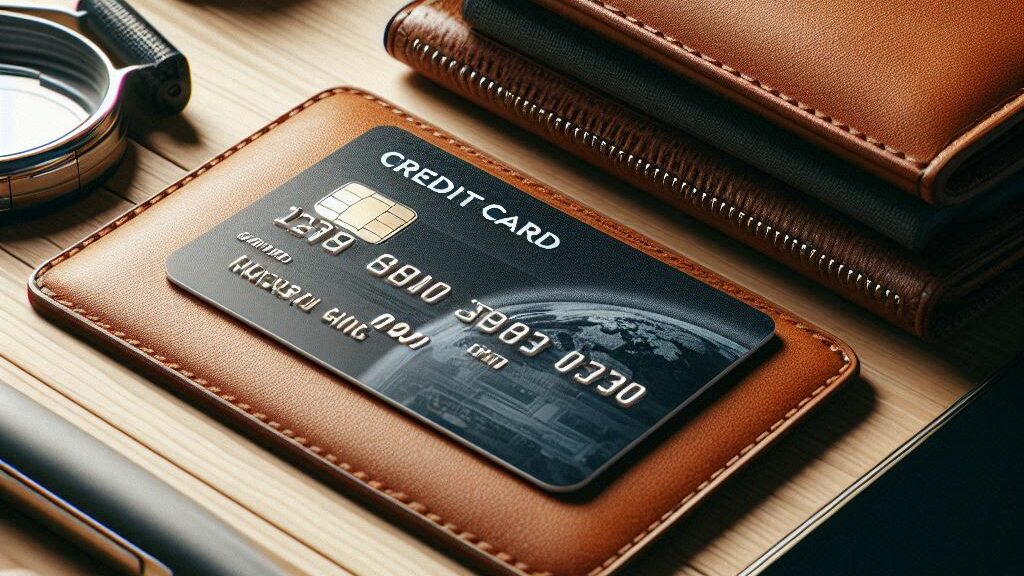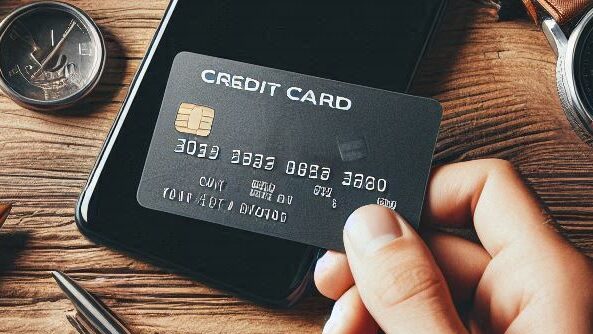
Introduction
Credit cards are common in today’s financial landscape, offering convenience and purchasing power. However, they’re often viewed with apprehension, labeled as a path to debt and financial ruin.
The truth lies in how they’re used. This article will dissect the pros and cons of credit cards, providing insights to help you decide whether they’re a friend or foe in your financial journey.

Understanding the Credit Card Ecosystem
Credit cards are essentially short-term loans from a financial institution. They allow you to make purchases now and pay for them later, typically with interest if the balance isn’t paid in full by the due date.
The Advantages: Credit Cards as a Financial Friend
When used responsibly, credit cards offer numerous benefits.
- Building Credit History:
- Consistent and timely payments build a positive credit history, essential for future loans, mortgages, and even apartment rentals.
- Convenience and Flexibility:
- Credit cards offer a convenient way to make purchases, both online and in person.
- Rewards and Cash Back:
- Many cards offer rewards programs, including cash back, travel points, and other perks.
- Purchase Protection:
- Some cards offer purchase protection, covering items that are damaged or stolen within a certain period.
- Enhanced Security:
- Credit cards offer better fraud protection than debit cards, limiting your liability for unauthorized charges.
- Emergency Funds:
- Credit cards can provide a safety net in case of unexpected expenses.

The Disadvantages: Credit Cards as a Financial Foe
Irresponsible credit card use can lead to serious financial problems.
- High Interest Rates:
- Credit card interest rates are often significantly higher than other types of loans.
- Debt Accumulation:
- Overspending and carrying a balance can lead to mounting debt.
- Fees and Penalties:
- Late fees, over-limit fees, and annual fees can add up quickly.
- Negative Impact on Credit Score:
- Late payments, high credit utilization, and defaults can damage your credit score.
- Impulse Spending:
- The ease of credit card use can encourage impulse purchases.

Current Trends in Credit Cards
The credit card landscape is constantly evolving, with new trends emerging.
- Increased Focus on Rewards:
- Credit card issuers are offering more lucrative rewards programs to attract customers.
- Digital Wallets and Contactless Payments:
- The rise of digital wallets like Apple Pay and Google Pay has made contactless payments more common.
- Buy Now, Pay Later (BNPL) Services:
- BNPL services offer short-term, interest-free loans at the point of sale, competing with traditional credit cards.
- Personalized Offers and Benefits:
- Credit card issuers are using data analytics to offer personalized rewards and benefits.

Examples of Credit Card Benefits
- Travel Rewards:
- A cardholder earns miles for every dollar spent, redeeming them for free flights and hotel stays.
- Cash Back Rewards:
- A cardholder earns 2% cash back on all purchases, receiving a statement credit each month.
- Purchase Protection:
- A cardholder’s new laptop is stolen within 90 days of purchase, and the credit card company reimburses the cost.
- Fraud Protection:
- A cardholder notices unauthorized charges on their statement and disputes them, resulting in a full refund.

Examples of Credit Card Pitfalls
- Debt Accumulation:
- A cardholder consistently spends more than they can afford, accumulating a large balance and paying high interest.
- Late Fees:
- A cardholder forgets to pay their bill on time, incurring a late fee and damaging their credit score.
- High Credit Utilization:
- A cardholder uses a large percentage of their available credit, negatively impacting their credit score.
- Over-Limit Fees:
- A cardholder exceeds their credit limit, incurring an over-limit fee.

Pros and Cons of Credit Cards
| Feature | Pro | Con |
| Credit Building | Yes | Damage if misused |
| Rewards | Yes | Can encourage overspending |
| Security | Fraud Protection | Risk of identity theft |
| Convenience | Easy Purchases | Impulse buying |
| Interest Rates | N/A | High if balances are carried |
| Fees | N/A | Late, over-limit, annual |

Tips for Responsible Credit Card Use
To maximize the benefits of credit cards and avoid the pitfalls, follow these tips:
- Pay Your Bill in Full and On Time:
- Avoid interest charges and late fees by paying your balance in full each month.
- Keep Your Credit Utilization Low:
- Aim to keep your credit utilization below 30% to maintain a good credit score.
- Monitor Your Statements:
- Regularly review your statements for any unauthorized transactions or errors.
- Choose the Right Card:
- Select a card that aligns with your spending habits and financial goals.
- Avoid Cash Advances:
- Cash advances typically come with high interest rates and fees.
- Set Up Alerts:
- Most credit card companies allow you to set up alerts for transactions and due dates.
- Understand the Terms and Conditions:
- Read the fine print to understand the interest rates, fees, and rewards programs.

Credit Cards vs. Debit Cards: A Comparison
- Credit Cards:
- Borrowed money, builds credit, fraud protection.
- Debit Cards:
- Your own money, no credit building, limited fraud protection.
The Psychological Impact of Credit Cards
- Instant Gratification:
- Credit cards can encourage instant gratification, leading to overspending.
- Financial Stress:
- Debt accumulation can lead to financial stress and anxiety.
- Sense of Security:
- Responsible credit card use can provide a sense of financial security.
Wrap Up
Credit cards can be a valuable financial tool when used responsibly. They offer convenience, rewards, and fraud protection. However, irresponsible use can lead to debt and financial problems.
By understanding the pros and cons, following responsible credit card habits, and staying informed about current trends, you can make credit cards a friend rather than a foe in your financial journey.
Did this article clarify your understanding of credit cards? What was the most valuable takeaway for you? Let us know in the comments!
We hope this guide helps you make informed decisions about credit card use.
Sources:
- Consumer Financial Protection Bureau (CFPB):
- “Credit Cards”: https://www.consumerfinance.gov/consumer-tools/credit-cards/
- Federal Trade Commission (FTC):
- Investopedia:
- “Credit Card”: https://www.investopedia.com/terms/c/creditcard.asp
- “Credit Score”: https://www.investopedia.com/terms/c/credit_score.asp
- NerdWallet:
- “How Credit Cards Work”: https://www.nerdwallet.com/article/credit-cards/how-credit-cards-work
- Experian:
Leave a Reply
You must be logged in to post a comment.